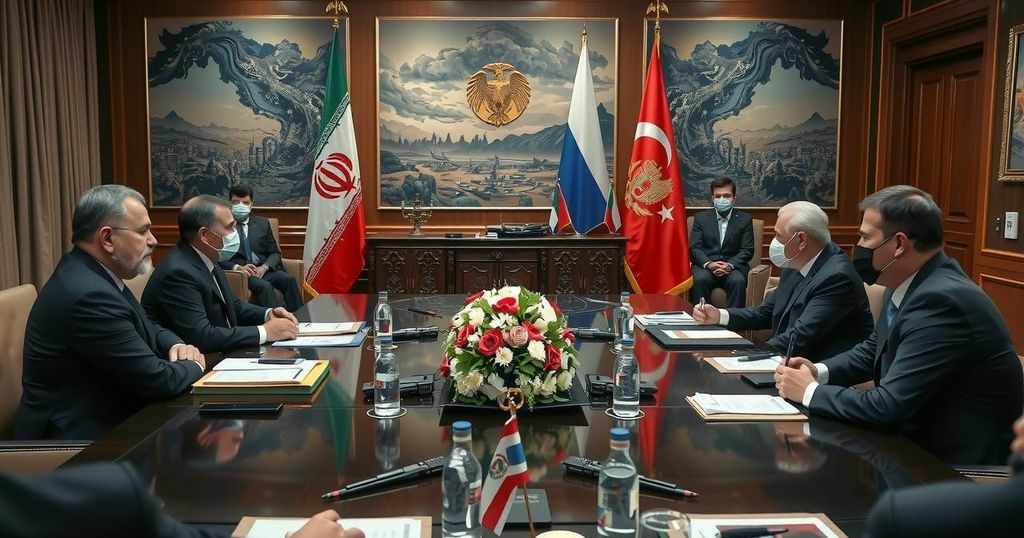The Iranian Foreign Minister’s adviser met with a Syrian delegation in Astana to discuss regional stability and Israel’s aggression. The events highlight ongoing efforts for reconciliation between Turkey and Syria and showcase Iran’s push for closer ties with Arab states, especially amid its reconciliation with Saudi Arabia. Future Arab summits are being planned to address regional issues and unify against Israel.
Iran’s Foreign Minister’s senior adviser, Ali Asghar Khaji, convened with a Syrian delegation in Astana, Kazakhstan. This meeting, the 22nd in a series aimed at discussing Syria’s future, involved key stakeholders: Iran, Russia, and Turkey. Despite increased stability in western Syria under the Assad regime, the current objective is for Turkey and Syria to reconcile. Iran emphasized the necessity of addressing the threats posed by Israel while reinforcing bilateral relations with Syria. During this gathering, the Iranian delegation took the opportunity to converse on regional developments and the perceived Zionist aggression affecting the broader Middle East. The Syrian chief negotiator reaffirmed the enduring strategic partnership between Syria and Iran. Amidst these discussions, Iran has been engaging with neighboring Arab states, including its recently reconciled ties with Saudi Arabia, as it endeavors to establish regional cooperation. Vice-President Mohammad Reza Aref of Iran extended an invitation for Saudi Crown Prince Mohammed bin Salman to visit Tehran, highlighting the potential benefits of improved relations for both nations and the broader Islamic community. Additionally, reports indicate that Iraq is coordinating an Arab summit for May to further discuss regional concerns and Israeli policies, aiming to solidify ties with Iran while addressing shared grievances against Israel. The Astana talks represent a continued diplomatic effort initiated in 2017 to find resolutions to the Syrian civil war that began in 2011, primarily under the auspices of Iran, Turkey, and Russia, and they underscore Iranian aspirations for regional leadership and collaboration.
The Astana format discussions, involving Iran, Turkey, and Russia, began in 2017 as a diplomatic initiative aimed at addressing the complexities of the Syrian civil war. Over the years, the dynamics have shifted with Syria’s regime solidifying its position in parts of the country. Iran, through these meetings, seeks to not only foster closer ties with Syria and Russia but also to counteract perceived threats, particularly from Israel. Iran’s broader regional strategy includes rekindling relations with Arab nations, most notably Saudi Arabia, and utilizing these partnerships to challenge Israeli influence in the region.
In summary, the Astana meeting underscores Iran’s strategic intentions in the Middle East, focusing on solidifying relations with Syria and expanding its influence in the region. The discussions also reflect a broader diplomatic initiative to challenge Israeli actions and reinforce collaborative ties among Islamic nations. The forthcoming Arab summit in Iraq highlights Iran’s commitment to unify Arab states against common threats, aiming for a cohesive regional stance.
Original Source: www.jpost.com






